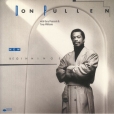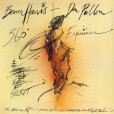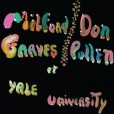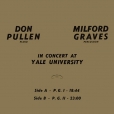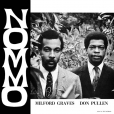Your basket is empty

‘First issued in 1985 by Hal Willner’s Shemp label. With its unconventional lineup featuring steel drums, Latin percussion, and French horns, along with the co-leaders’ drum-kit and piano, it is among the most wonderful outings of its decade. Pullen was in top form, his inside-outside approach to the keyboard perhaps optimally heard on the exuberant Double Arc Jake, where the bright melody suddenly breaks into pieces, snapping back into miraculous shape. The band includes Hamiet Bluiett on baritone saxophone and Ricky Ford on tenor saxophone, along with Buster Williams on bass, Francis Hayes on steel pans, and a special brass section led by Sharon Freeman on the seventeen-minute Goree.’
Bringing together two of the most prized, auratic LPs in all of free music, with music as vital and challenging today as it was more than five decades ago.
In Concert At Yale University, Vol. 1 was self-released on the duo’s Self-Reliance Program imprint in 1966. Copies are impossibly rare, especially the first few, which sported hand-painted covers by the musicians. (Several of these are displayed in the CD gatefold, together with a terrific photo of the pair selling LPs at a Nation of Islam convention.)
It was followed by Nommo, the next year.
For a performance at Yale University in New Haven, Connecticut, in spring of 1966, percussionist Milford Graves invited pianist Don Pullen to play duets. The two musicians had worked together in a band fronted by saxophonist and clarinettist Giusseppi Logan, with whom they had recorded two LPs in 1965 for ESP. Graves was already a daunting presence in free music. One step at a time, he was busy transforming the role of drumming in jazz, introducing a new way of dealing with unmetered time and accomplishing this task with technique that was almost inconceivable. His experience playing timbales in Latin bands had been formative, suggesting that the snare could be used as accent rather than beat-keeper, but by the mid 60s he’d worked up a holistic approach to sound and energy that was the most radical of his improvising percussion contemporaries.
For his part, this early setting finds Pullen at his most hard-hitting, and his pianism here lays to rest any allegations of Cecil Taylorism.
